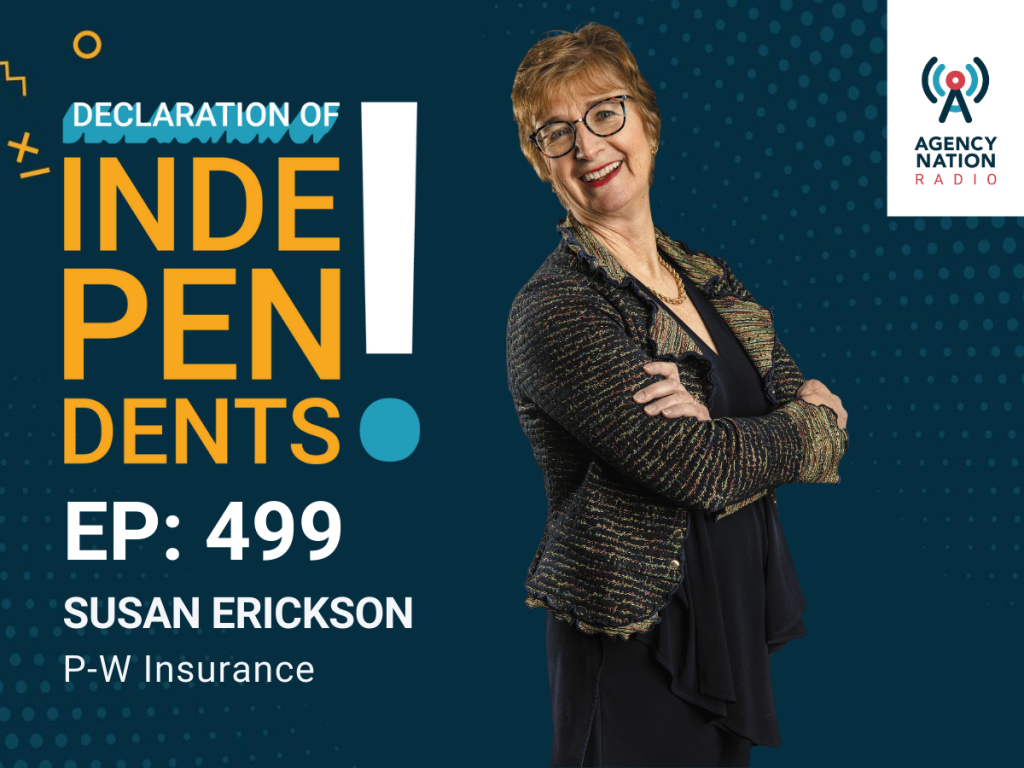Niche Perfect
By: Norma Hopcraft
Ben Winters was new to the insurance business and, wondering how to kick-start his production, started asking an underwriter some questions.
“Where are you seeing the most success right now?” Winters asked. The underwriter, with a large regional carrier on the East Coast, mentioned a childcare center program. Winters soon discovered two more of his agency’s carriers also offered specialties in childcare.
“I thought, I have a lot of ways I can win here,” says Winters, who at 34 is now a fourth-generation producer at Winters-Oliver Insurance Agency near Richmond, Va. “And we have a lot of players on my team. So it made sense.”
Winters started sending out letters and cold-calling nearby childcare facilities until he got his first couple of appointments. The niche began to snowball; in seven years, Winters has grown it to 20% of his total revenue.
Niches Gain Steam
The commitment to niches has increased among agencies of all sizes, according to Shirley Lukens, who has managed the Best Practices program for the Big “I” and Reagan Consulting since its launch two decades ago. The number of small Best Practices agencies that report industry or product specialties has increased by 58% since 2010, and while larger agencies of all size categories have been dabbling in niches for decades, their niche revenues have also increased over the last three years.
What makes niches succeed? Lukens points to several reasons: advertising is often more efficient thanks to targeted campaigns; referral systems are more reliable; staff can handle business more confidently and customer retention increases. In the latest Best Practices study, the percentage of total agency net revenue from industry specialties ranges from 11% for small firms to as much as 31% for larger agencies. In fact, specialty business outperformed general business in four categories in 2013.
And although small agencies often claim they need to be generalists in their small marketing territories, that’s beginning to change. Lukens points to a small firm in a “little-bitty town in Montana” where one of the producer’s daughters participates on a national archery team. “That opened all kinds of doors,” Lukens says. “So they sell insurance to archery ranges and they insure archery equipment. They managed to think outside the box.”
At Warwick Resource Group in Warwick, N.Y., CFO Keith Savino focuses on technology; his brother Richard on construction; and their partner John Sanford on agribusiness. Working in their niches, the brothers joined Sanford in 2000 in a customer-centric small agency that celebrated 150 years last month. They retained the clientele and, pursuing their personal passions, managed to quadruple revenues.
“We did it through niche marketing,” Keith Savino says. “Now we have offices in three states and clients across the U.S. We go after clients in our niches, not just the neighborhood. The challenge is thinking outside your ZIP code.”
Mike Herzak of Insurance Systems Group in Cleveland, Ohio has been involved in the Orthodox Church locally and nationally since his teens. He wrote a few churches and realized they had a unique aspect that wasn’t being addressed by the marketplace. “They have iconography that is ornate and difficult to replace,” he explains. “Most agents don’t understand their value.”
The niche now accounts for 20% of revenue at Insurance Systems Group.
So how can more independent agents follow suit?
Identify an Opportunity
For starters, agents should find an industry that interests them, and consider using the marketing reps from the insurance carriers they most enjoy working with as a resource. “Only do what you like to do,” Savino says. “Otherwise it will be painful when you service that account.”
Agents should also give latitude to producers. “Trial and error is a valid strategy to identify niches,” says Nicholas Jorgenson, account executive at Hester, Heitel & Associates in Phoenix, Ariz. “This is an entrepreneurial endeavor.”
Hester, Heitel & Associates is currently developing a niche in telecommunications and carrier marketing reps have proven to be valuable allies. “When they say, ‘Almost everyone we quote, we win,’ that means their price is good in that niche,” says Nicholas Jorgenson, account executive. “Their forms are good, and we can sell it also.”
When selecting carrier partners, pay attention to not only recent success, but also a track record for staying in that segment with stable pricing. “If they are committed, as an agent I can go confidently after that segment,” Winters says.
Agents should also ask prospects to identify their pain. Case in point: Herzak’s work with limousines. “I realized they were grossly overpaying,” he says. “Ask carriers why they don’t want to write it. You’ll learn a lot.”
And sometimes, a big niche has to be narrowed down. “The world is not your oyster,” Savino says. Martin Agather, vice president of client development for the Consumer Agent Portal (CAP), agrees: “The more niche your niche, the more you can craft a specific message to that group.”
Be a Consultant
Winters is convinced that going beyond insurance is key in retaining business and helping clients. “We had deeper conversations with these business owners on what their challenges were that weren’t insurance-related,” he says. “I found a lot of these—even larger ones—are people who wear a lot of hats. They are their own HR department.”
The agency shifted to support its niche clients, buying a subscription to an online HR resource portal and sharing it free with clients. Winters also speaks at associations conferences and trade shows. And with health care reform confounding owners of childcare centers, Winters’ agency is helping them through a new jungle. “Now we’re the trusted advisor,” he says.
Best Practices firm Austin & Co. in Albany, N.Y. takes a like-minded approach. “We made a conscious choice about three years ago to be consultants,” says James Sidford, president and CEO. “The world is headed toward consulting.”
A key niche for Austin is some 300 private secondary schools in New Jersey and New York. The firm hired a full-time HR professional, who walks clients through all varieties of related state and federal compliance regulations, including the new Affordable Care Act. It provides additional benefits, risk management, compliance and insurance consulting to the clients through what Sidford calls a “consortium.” Because the specialists all know the industry so well, Sidford says the agency has gained a competitive advantage.
“We want clients to pick up the phone—no matter what the issue is—and someone at Austin is able to help them,” Sidford says.
Best Practices agency Kapnick Insurance Group in Adrian, Mich., which has major focuses on transportation, habitational and manufacturing accounts, has pinpointed a niche that lies outside the property-casualty realm. “The p-c insurance side has a lot of momentum on branding yourself as an expert,” says Jim Kapnick, agency president. “That hasn’t been true on the employee benefits side.”
In response, the firm has created and refined a focus on businesses with 100 or more employees. “Kapnick Strive” is a health management solution that combines branded services with those offered by third parties. Some agents simply provide those services in a referral or under a separate arrangement. Either way, Kapnick strives to make clients believe they’re doing business with the agency.
Get Started Now
While the strategies for growing a niche are straightforward, being persistent in implementing them is the biggest factor for success.
“There’s no silver bullet or magic involved,” Winters says. “You have to commit yourself to the niche and work it consistently and stay in the game. As long as you treat people right and demonstrate you put their interests first, I’ve found they will be very happy to refer you.”
Norma Hopcraft is a freelance writer.
SIDEBAR: Build a Niche from the Ground Up
Adjust your agency structure. Often, that means creating teams around industries, hiring good specialists and salespeople from those industries—and then teaching them the insurance piece. “[Agencies] are finding employees who know those specialties very well and building teams around them,” says Shirley Lukens of Reagan Consulting.
Learn the lingo. “Talk in the language of your customer,” says Martin Agather of the Consumer Agent Portal. “The fact that you know the word ‘terrazzo’ shows you know something about the concrete flooring niche in the construction industry.”
Maximize your resources to meet unique challenges. In response to headlines, Mike Herzak of Insurance Systems Group developed a sexual abuse prevention program for churches, as well as an artwork coverage and dividend program that pays back premiums for a good loss history.
Broaden your horizons. Herzak went to national church leaders and showed them what he could do if he had their help. When individual parishes saw that the national church endorsed his program, doors opened quickly.
Know your audience. Agents can succeed by focusing on ethnic communities and their unique needs. That might mean offering policies written in their language, bi-lingual claim forms and more.
Track your results. Capture your time and marketing expenses in each niche and compare it to revenue derived from the niche. If it’s less than the cost of your time and expenses, give it up after a year, says Ben Winters of Winters-Oliver Insurance Agency.
Craft a relevant message. CAP helps agencies present their niche expertise to prospects in print and online marketing materials. “Which message would you choose: ‘We know everything’ or ‘We know everything about your niche’?” Agather asks.
—N.H.
SIDEBAR: How Do You Know You’re a Niche Player?
- You like what you’re doing.
- You bring your service to the next level, and people recognize you at that level.
- Other agents know what you write.
- You’re always reading articles about your niche.
- Two or three of your best friends are in that space—clients you’ve come to know well.
- CEOs call you because they were referred.
- You have enough social media and press.
- You get invoices for dues and event notices for groups, because you’re a sponsor in that niche.
- You’re on the stage, not in the audience.










